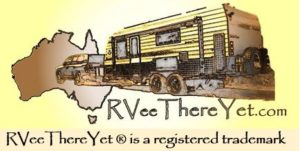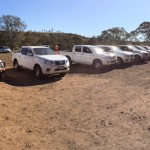Buying a 4WD for Towing

Australia is spoilt for choice when it comes to 4WDs that are suitable for towing a camper or caravan around the country. There are literally dozens of vehicles from manufacturers from all over the world that could satisfy your needs. Problem is how do you choose which one is right for you?
It is actually a very complicated process but if you stick to the basics, it will help you to narrow down your search considerably.
What are you going to tow?
In many ways, whatever you choose to be your RV will largely determine which vehicles have the capacity to tow it. If it’s just a small camper trailer, then just about any vehicle would be capable. If it’s a full off road caravan weighing 3,500kgs full of all your gear, then that narrows down the choices considerably and eliminates many of the soft roaders and a few dual cab utes. Even the mighty Toyota Prado can’t cope with this load.
Where are you going to tow it?
4WDs come in many specification levels with varying capabilities. If you are going to stick largely to the black top and perhaps the occasional dirt road, then you may not necessarily need a full size 4WD. If you want to tow your full off road camper trailer along the Telegraph Track to Cape York, you will need something with decent 4WD capability and a certain level of robustness. If you want to traverse some of the remotest tracks in the country like the Tanami Road, then you will want a vehicle with a decent range and fuel carrying capacity as well as a sturdy construction. Getting maintenance, service and spare parts in such remote areas may mean you need to stick to the big brands like Ford, Holden, Toyota, Nissan, Mitsubishi and Isusu.

How much gear to you need/want to carry?
This may seem like a strange thing to consider but believe me when I tell you that no matter how much gear you think you will want to carry, it will inevitably end up being more and you will likely be overloaded. 4WDs (as are any other vehicles) are rated for Gross Vehicle Mass (GCM) and Gross Combination Mass (GCM). GVM is the maximum weight your 4WD can weigh with everything on-board including you and your passengers, fuel, language, spare parts and any aftermarket accessories you fit to it. GCM is all that plus the maximum weight you can tow with that vehicle. In many cases, it is actually less. You need to carefully check the vehicles’ specifications and do your sums to ensure you do not end up with a vehicle that is incapable of carrying the load you need.
Do your Research
I cannot stress how important it is to research your options before making a decision. There is a lot of information on the internet about specific vehicles, with many having dedicated forums where owners share problems and solutions as well as their general experiences. Spending some time ploughing through these forums can be time well spent. Also, talk to other owners when you’re out and about. Most people are only too happy to let you know their experiences with their vehicles, especially 4WDers.
One thing to keep in mind is that many owners will rarely admit that they have not got the vehicle they intended or that it has been less than reliable. You may have to sift through the information to determine who you believe is telling you the honest truth. Similarly, many vehicles have earned a bad reputation because of past poor build quality or one particular model that did not live up to expectations. While some of this criticism may be founded in truth, or even be deserved to some extent, it may not necessarily be applicable to the vehicles made today.
There is nothing like the weight of numbers. Spend 15 minutes watching the procession of caravans and camper trailers heading out of the cities before a weekend or holiday period and take note of the most common vehicles. There’s a reason they sell so many.

Take them for a drive.
Once you have made a shortlist of the vehicles you want to chose from, do not be afraid to go and take them for a test drive. And not just a quick trip around the block. Tell the salesperson that you are very interested in the vehicle and that it is on your shortlist. I would even tell them who the competition are. Make sure they allow you to give the car a good drive in both stop start traffic as well as and a nice quick blast on the freeway. If you already have your caravan or camper and you are upgrading to a new vehicle, ring ahead and see if they will allow you to test drive with the trailer in tow. You may be surprised what some sales reps will allow you to do.
As an example, we were considering a Land Rover Discovery. We went to the local dealership and told them we were in the process of deciding what we wanted. They immediately gave us the keys (after signing the necessary forms) and said "Take it for a good long drive. We wont expect to see you back for at least an hour...!" The rep didn't even come with us. We took 2 of their vehicles for a test drive that day. Brilliant sales strategy.
Making the final decision.
For many people, the final choice will be a compromise depending on requirements and budget. Not everyone can afford the top of the line Range Rover. So you may have to prioritise your needs and perhaps consider which ones you can live without in order to get the right vehicle for the money you can spend.
For us our decision making process was not so difficult.
We needed a 4WD that was capable of towing up to 3,500kg. We needed it to have a decent range when towing that load. It had to be tough enough to cover many miles of outback dirt roads. We insisted on it being reliable but we wanted the security of having service agents in as many parts of the country as possible. We wanted a diesel so fuel availability in remote communities wouldn’t be an issue and so we could achieve reasonable fuel economy. Finally it had to be comfortable enough to drive for long distances every day as well as being a daily drive back home in CBD Melbourne. Trying to get all that in one vehicle really did eliminate many contenders and in the end only one 4WD really fulfilled the brief.






